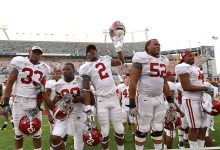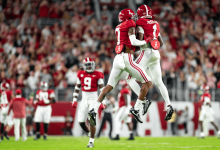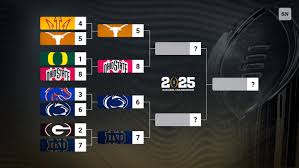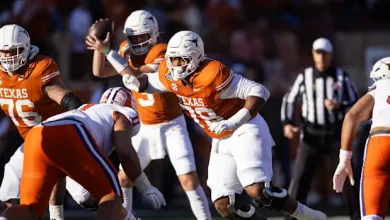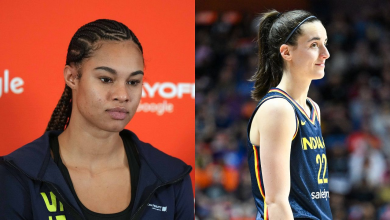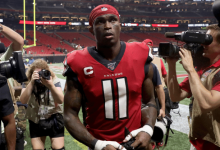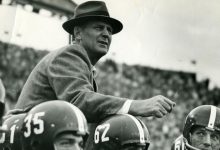College football’s lost its soul—no loyalty, just money grabs. Demanding millions before proving anything? Ridiculous. Props to Tennessee for cutting ties and staying grounded.
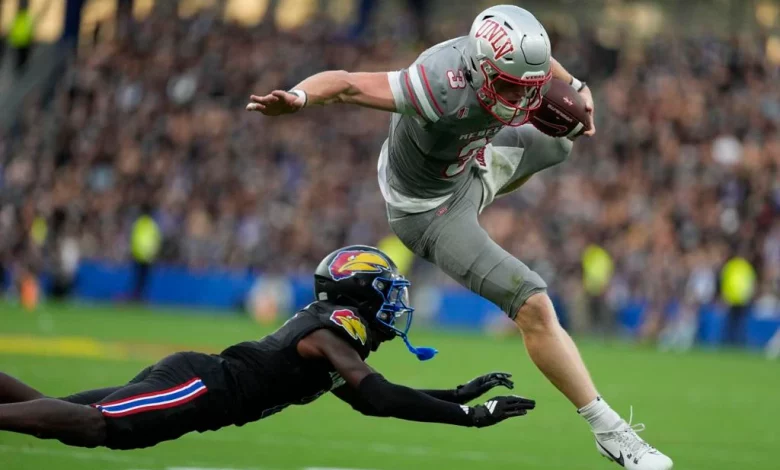
Once upon a time, college football was about pride, tradition, and the bond between school and athlete. You’d commit to a program, grind with your brothers for three to four years, and maybe—just maybe—you’d earn a shot at the NFL. Even if you didn’t, you were part of something special. The name on the front of the jersey meant something. The name on the back? That came second.
But those days are long gone.
The sport has changed—radically—and not necessarily for the better. The latest chapter in this downward spiral is the saga surrounding former Tennessee quarterback Nico Iamaleava. The five-star golden boy, once touted as the future of the Volunteers, jumped ship and bolted for UCLA. And not quietly. Reports have swirled of Iamaleava seeking up to $4 million in NIL money—despite never proving a damn thing at the college level.
Let that sink in.
We’re talking about a kid who’s thrown a handful of passes in garbage time, hasn’t started a full season, hasn’t played a single down in the NFL, and he’s commanding a payday that rivals rookie contracts. In what world is this considered normal?
The NIL Gold Rush: Good Intentions, Bad Execution
Let’s be clear: NIL (Name, Image, Likeness) was created with noble intentions. Athletes who help generate millions—sometimes billions—for their schools should be able to make money off their own likeness. Fair enough. A star quarterback should be able to sign autographs, appear in commercials, or sell branded merchandise. Nobody’s arguing with that.
But what we’re seeing now isn’t that. It’s not about fairness or justice—it’s a bidding war. A race to the highest dollar. A system where unproven teenagers are treated like free agents, and loyalty is nothing more than a line on a press release.
Iamaleava is a prime example. He was hyped, heavily promoted, and expected to be the centerpiece of Tennessee football for years to come. But the moment things didn’t go exactly to plan—or someone waved a bigger check—he was out. No loyalty. No growth. Just “thanks, next.”
And fans are supposed to just accept that?
The Fans Lose, Every Time
College football is supposed to be about passion. About waking up early on Saturdays, painting your face, and tailgating with people who bleed the same colors you do. It’s about watching a freshman struggle, improve, and become a leader by the time he’s a senior. That arc—that journey—is what built the sport’s fanbase.
Now? Players are gone before you even learn how to pronounce their last names. Quarterbacks switch schools like they’re picking a new Uber destination. The concept of a “program guy”—someone who grows within a system and gives back more than he takes—is almost extinct.
The fans lose the most. We invest our time, our money, and our hearts into these teams. And when players bail the second a better financial offer comes along, it feels personal. Because it is.
What About the Locker Room?
Let’s talk about the message this sends inside the program. Imagine being a junior defensive lineman who’s busted his tail for three years, waiting for his shot. Now imagine watching an unproven transfer walk in and command millions—before he’s even earned a spot.
How do you think that feels?
It breeds resentment. Division. Entitlement. Suddenly, the locker room isn’t a brotherhood—it’s a marketplace. Players aren’t teammates, they’re competitors for money. Coaches aren’t building a team—they’re managing a brand. And when that brand gets cold, they’re cut loose.
That’s not college football. That’s the NFL without the contracts, the structure, or the accountability.
The Case for a Cap
It’s time to talk about regulation—real regulation.
No, this isn’t about stripping athletes of their right to earn. But it is about preserving the integrity of the sport. There needs to be a cap on NIL earnings, especially for unproven players. If you’ve never started a game, you shouldn’t be commanding NFL-level money. Period.
Set a baseline. Tie earnings to performance metrics—games played, touchdowns scored, GPA, community service, something. Make sure NIL remains an incentive, not a guarantee. Right now, it’s a blank check handed to kids who’ve never faced real adversity or earned their stripes.
Without guardrails, this isn’t just unfair—it’s unsustainable.
Schools Need to Take a Stand
Credit to Tennessee for moving on. They didn’t bend the knee. They didn’t restructure their program around a single player who clearly had one foot out the door. Instead, they took a stand—a rare but refreshing move in a landscape dominated by desperation and appeasement.
That’s what more schools need to do.
Programs should stop pandering to the whims of teenage quarterbacks with inflated egos and agents whispering in their ears. Develop talent, build a culture, and reward players who actually stay. NIL deals should go to the guys who put in the work, not those who chase the biggest bag.
The transfer portal was meant to give players more freedom, not to turn college football into a revolving door of rented talent. Loyalty still matters. At least it should.
The Players Aren’t Entirely to Blame
Let’s be fair: the kids didn’t create this system.
They’re taking advantage of what the adults gave them. The NCAA, in its cowardice and inaction, failed to create a real framework for NIL. They let chaos reign. They let boosters become powerbrokers. They let collectives operate unchecked, with zero transparency and zero consequences.
So yes, Iamaleava and others like him are just playing the game. But the game is broken.
Still, someone has to take responsibility. And that starts with the adults in the room—university presidents, athletic directors, conference commissioners. They need to come together, draw a line in the sand, and fix this before it’s too late.
Because right now, it’s spiraling out of control.
What About Education?
Let’s not forget: these are student-athletes. Or at least they used to be.
But in the current model, how many of these high-profile NIL kids actually care about education? How many are truly committed to earning a degree, giving back to the school, or building relationships beyond football?
It’s hard to focus on academics when you’re cashing seven-figure checks and hopping schools every 12 months.
College football used to be a launchpad—not just to the NFL, but to life. It taught discipline, sacrifice, leadership. But if you’re bouncing from program to program, always chasing more, you’re not learning anything except how to play the system.
And that’s not a lesson worth teaching.
Where Does This End?
If this continues unchecked, the future of college football looks bleak. The sport we grew up loving will be unrecognizable. We’ll have minor-league NFL teams disguised as college programs. Rich schools will get richer, buying up all the talent. Smaller programs will become irrelevant.
And worst of all? Fans will check out.
They already are. Attendance is dropping. Viewership is down in some markets. People are tired of investing in players who aren’t going to be around long enough to matter. They’re tired of watching their favorite programs get gutted by the portal every offseason.
Without loyalty, there’s no identity. Without identity, there’s no tradition. Without tradition, there’s no college football.
There’s Still Time to Fix It
All is not lost—yet.
There are still programs doing it the right way. There are still players who stay, who work, who grow into legends. There are still coaches who believe in development over dollars. But they’re becoming harder to find.
If the NCAA doesn’t step up, Congress might. That’s not ideal, but it may be necessary. NIL reform is coming—it has to. Whether it’s salary caps, contract structures, or transfer limits, some kind of control is needed before the sport tears itself apart.
Until then, it’s up to fans and programs to speak up.
Say no to the madness. Reward loyalty. Support the kids who grind. Turn away from the prima donnas who treat college like a pit stop on their influencer tour. Demand better—from the players, the schools, and the system.

